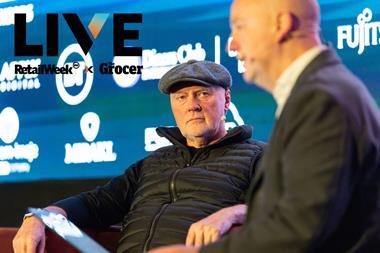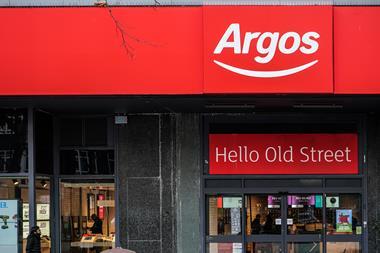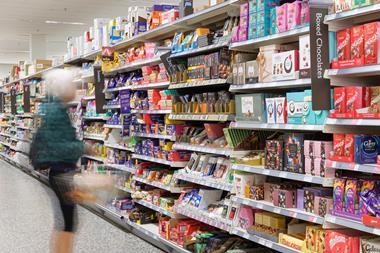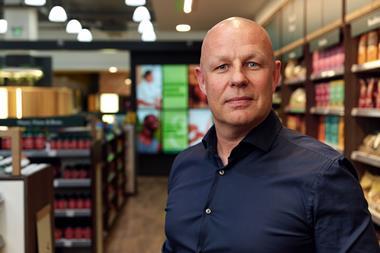>>JULIE LEGGE, COMMERCIAL MANAGER, COELIAC UK, on how manufacturers can benefit from new allergen labelling
The introduction of the allergen labelling regulations in November this year may appear to offer little commercial benefit, but for people with coeliac disease it is a welcome development that will enable them to shop normally and enjoy a more varied diet. And thanks to better diagnosis and awareness, the gluten-free foods market, currently at £155m, will continue to grow.
Coeliac disease is a lifelong autoimmune disease caused by gluten intolerance. The only treatment is a gluten-free diet for life. There are about 250,000 people currently diagnosed with the condition and up to 500,000 undiagnosed cases. Market growth is driven by new diagnoses, estimated currently to be 12,000 per annum. However, better awareness of the disease means the rate of diagnosis is increasing.
People with coeliac disease are the core consumers of gluten-free products, eating a gluten-free diet out of necessity, not choice. Our research indicates that it is the coeliac in the household who drives the choice of where to shop and what to buy. Once they find a product, these customers remain loyal for life - if they like a brand, they’ll stick to it.
Gluten-free consumers want to shop normally and have similar shopping needs to everyone else. They don’t always want substitute foods from the Free From aisle and, wherever possible, prefer mainstream brands that happen to be gluten-free because there’s more choice, they’re cheaper and the whole family will eat them.
The new allergen labelling regulations are planned to come into effect in November 2005. Of the ‘big 12’ identified allergens, gluten is one of the top three. Food manufacturers will be required to ensure that all allergens present are listed. In theory, this should provide at-a-glance information about the allergen content of foods.
While some may see it as a constraint, rather than an opportunity, the new labelling regulations will in fact present many new benefits for food suppliers as demand for quality, gluten-free foods continues to rise. Ultimately, gluten-free consumers want risk-free shopping and once they begin to feel more confident that the products they buy are allergen-free through clearer labelling, this will have a positive impact on sales.
Confusion arises over the terminology used to convey that foods do not contain gluten. Allergen labelling is a negative approach - identifying foods that contain
the allergen and therefore cannot be consumed. A positive approach is to label a food ‘gluten-free’, so that shoppers can make a positive purchase decision. A pro-active policy on ingredients so that gluten-free alternatives are used at all times will also help. We take many calls from people confused by the use of ‘suitable for coeliacs’ or ‘suitable for a gluten-free diet’. If it’s gluten-free, then label it ‘gluten-free’.
To help identify gluten-free foods, we license the crossed grain symbol. It can be used by suppliers and retailers, is recognised around the world and gives added assurance the product is gluten-free. Eight per cent of our members see the symbol as a sign of integrity.
The speciality gluten-free market, such as products marked ‘free from gluten’, is big business - now estimated to be worth around £25m [Mintel]. However, the market for products that coeliacs would buy but which are not specifically marketed as gluten-free food is estimated to be worth £130m. We believe the foodservice market is poised for take-off as gluten-free consumers now demand the same levels of availability and service as they get in retail.
Coeliac UK works with a wide range of food manufacturers and retailers to ensure people with coeliac disease can enjoy a healthy, varied diet. Allergen labelling presents a growing commercial opportunity, but it’s also about time the food industry woke up to its social responsibilities to market food that meets the needs of people who must have a gluten-free diet.
n Coeliac Awareness Week is May 16-22.
The introduction of the allergen labelling regulations in November this year may appear to offer little commercial benefit, but for people with coeliac disease it is a welcome development that will enable them to shop normally and enjoy a more varied diet. And thanks to better diagnosis and awareness, the gluten-free foods market, currently at £155m, will continue to grow.
Coeliac disease is a lifelong autoimmune disease caused by gluten intolerance. The only treatment is a gluten-free diet for life. There are about 250,000 people currently diagnosed with the condition and up to 500,000 undiagnosed cases. Market growth is driven by new diagnoses, estimated currently to be 12,000 per annum. However, better awareness of the disease means the rate of diagnosis is increasing.
People with coeliac disease are the core consumers of gluten-free products, eating a gluten-free diet out of necessity, not choice. Our research indicates that it is the coeliac in the household who drives the choice of where to shop and what to buy. Once they find a product, these customers remain loyal for life - if they like a brand, they’ll stick to it.
Gluten-free consumers want to shop normally and have similar shopping needs to everyone else. They don’t always want substitute foods from the Free From aisle and, wherever possible, prefer mainstream brands that happen to be gluten-free because there’s more choice, they’re cheaper and the whole family will eat them.
The new allergen labelling regulations are planned to come into effect in November 2005. Of the ‘big 12’ identified allergens, gluten is one of the top three. Food manufacturers will be required to ensure that all allergens present are listed. In theory, this should provide at-a-glance information about the allergen content of foods.
While some may see it as a constraint, rather than an opportunity, the new labelling regulations will in fact present many new benefits for food suppliers as demand for quality, gluten-free foods continues to rise. Ultimately, gluten-free consumers want risk-free shopping and once they begin to feel more confident that the products they buy are allergen-free through clearer labelling, this will have a positive impact on sales.
Confusion arises over the terminology used to convey that foods do not contain gluten. Allergen labelling is a negative approach - identifying foods that contain
the allergen and therefore cannot be consumed. A positive approach is to label a food ‘gluten-free’, so that shoppers can make a positive purchase decision. A pro-active policy on ingredients so that gluten-free alternatives are used at all times will also help. We take many calls from people confused by the use of ‘suitable for coeliacs’ or ‘suitable for a gluten-free diet’. If it’s gluten-free, then label it ‘gluten-free’.
To help identify gluten-free foods, we license the crossed grain symbol. It can be used by suppliers and retailers, is recognised around the world and gives added assurance the product is gluten-free. Eight per cent of our members see the symbol as a sign of integrity.
The speciality gluten-free market, such as products marked ‘free from gluten’, is big business - now estimated to be worth around £25m [Mintel]. However, the market for products that coeliacs would buy but which are not specifically marketed as gluten-free food is estimated to be worth £130m. We believe the foodservice market is poised for take-off as gluten-free consumers now demand the same levels of availability and service as they get in retail.
Coeliac UK works with a wide range of food manufacturers and retailers to ensure people with coeliac disease can enjoy a healthy, varied diet. Allergen labelling presents a growing commercial opportunity, but it’s also about time the food industry woke up to its social responsibilities to market food that meets the needs of people who must have a gluten-free diet.

















No comments yet